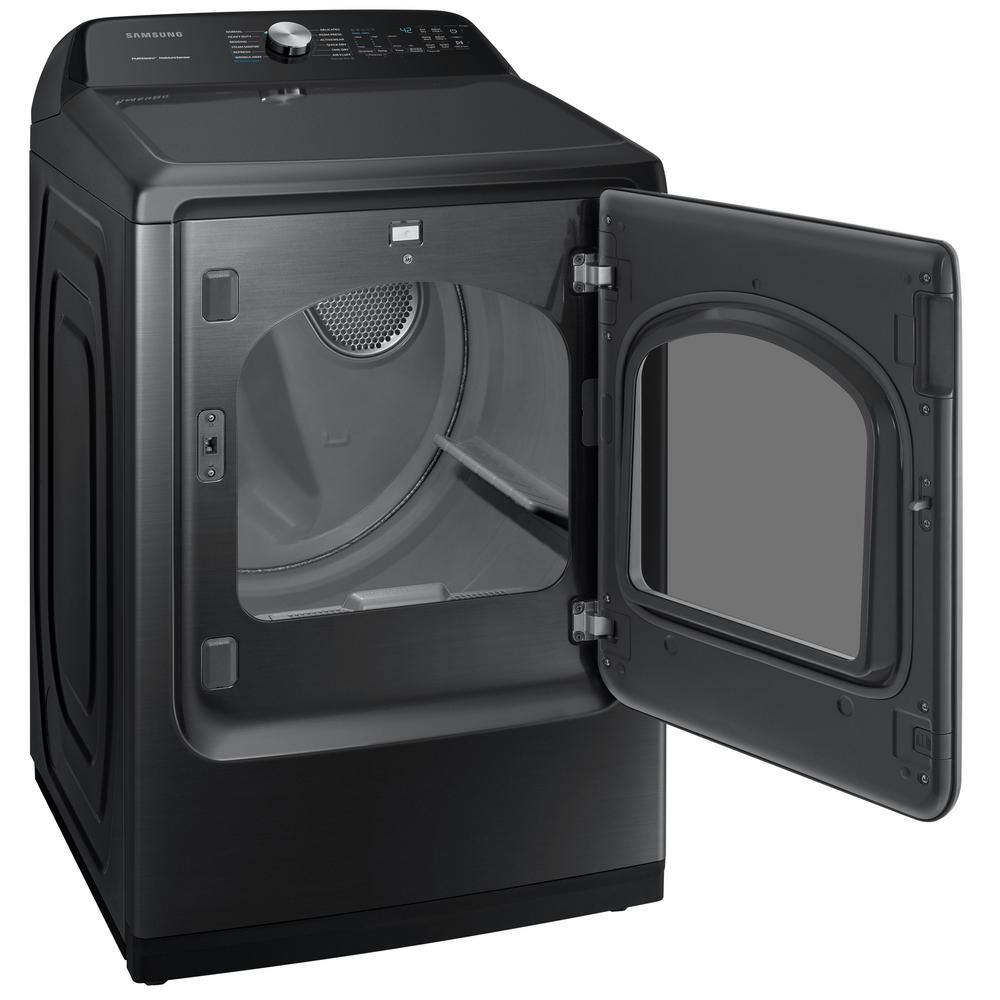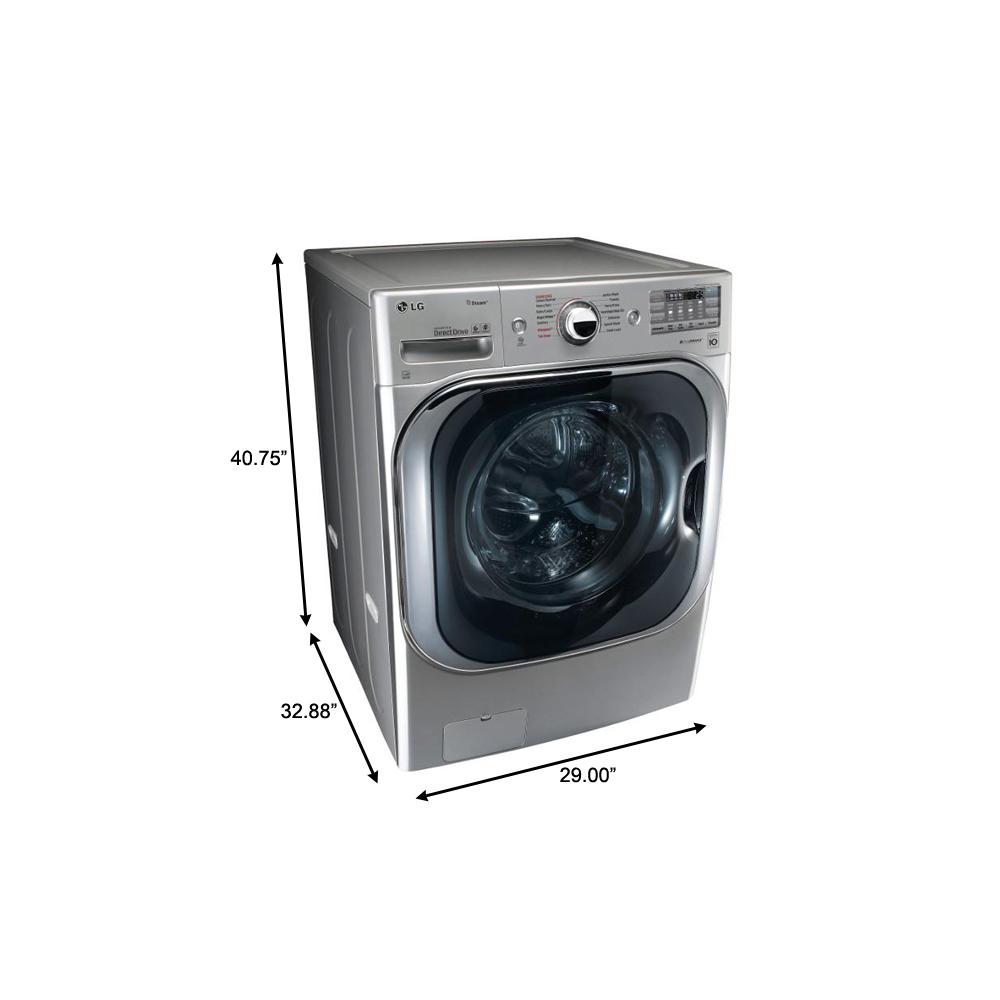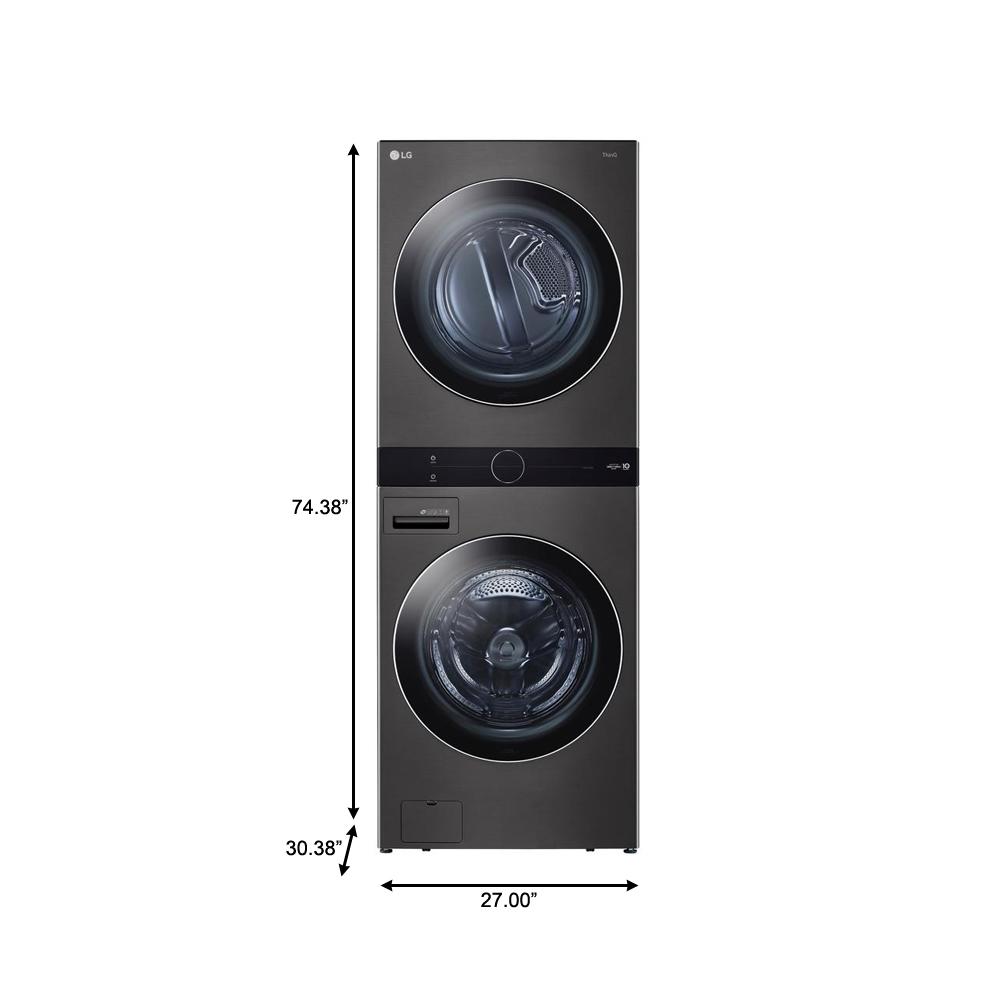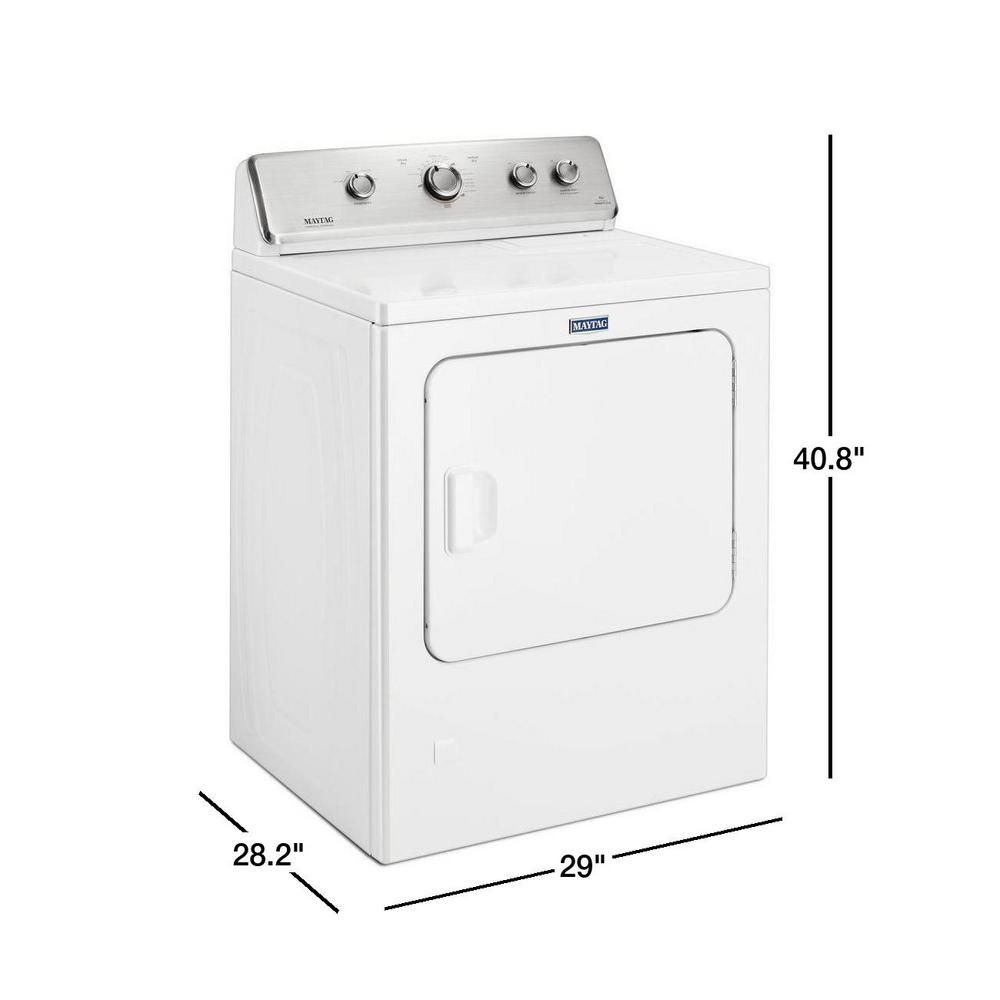Samsung 7.4 cu. ft. Fingerprint Resistant Black Stainless Electric Dryer with Steam Sanitize+
SteamSanitize+: Eliminates 99.9% of bacteria and germs. Sensor Dry: Helps prevent overdrying for optimal fabric care. 12 Preset Cycles: More cycles to best suit your drying needs.
Advanced features like Steam Sanitize+ eliminate 99.9% of germs and bacteria1, while Multi-Steam technology relaxes and smooths away wrinkles from everyday wear. Sensor Dry optimizes cycle time and temperature to thoroughly dry without damaging your clothes. With 12 preset drying cycles, you can cover almost every drying need for your active family.
- Steam Sanitize+ cycle removes 99.9% of germs and bacteria, over 95% of pollen, and kills 100% of dust mites1. Multi-Steam Technologysteams away wrinkles, odors, and static
- Sensor Dry – Automatically optimizes the time and temperature of your drying cycle to protect your clothes from heat damage, while avoiding excess energy use
- 12 Preset Drying Cycles – More cycles to cover almost every drying need for your active family
- Smart Care – Easy troubleshooting from the convenience of your smartphone2
- Interior Drum Light -Put an end to stray socks or smaller laundry items that are hard to spot
- Reversible Dryer Door -Choose the direction your dryer door opens to better suit your homes layout
- Lint Filter Indicator -Provides a helpful reminder when its time to clean the filter
- Accessibility (AUI, Braille) -Designed for easy use for everyone
- 9 Additional Drying Options – More options to enhance your drying cycle, providing optimal care for all fabric types
- 5 Temperature Levels – Select the ideal temperature to dry your clothes gently and thoroughly
- Wrinkle Prevent – Tumbles your laundry even after the cycle is complete to prevent wrinkles
- Flexible Venting Options – 4 way venting options allow your dryer to be vented on multiple sides
- Matching Washer: WA50R5400AV
- Based on internal testing and independently verified by Intertek. Individual results may vary.
- Requires Samsung Smart Washer/Dryer App. The Samsung Smart Washer/Dryer app supports Android OS 2.3.6 or later and iOS 3 or later for iPhone models. Smart Washer/Dryer App available in App Store and Play Store
Additional information
| Depth With Door Open 90 Degrees (In) | 50.8 |
|---|---|
| Door Opening Height x Width (In.) | 44.6 x 27 |
| Product Depth x Height x Width (in.) | 30.2 x 44.6 x 27 |
| Certifications and Listings | No Certifications or Listings |
| Manufacturer Warranty | One (1) Year Parts and Labor |






by Elizabeth
I wish the settings were adjustable on the different cycles. Other than that, they are great!
by Mike
Easy install and easy to use.